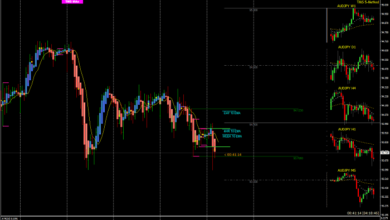Application for Bank Statement: A Complete Guide

A bank statement is a document that shows all of the transactions that have occurred on your bank account during a specific period of time. Bank statements can be used for a variety of purposes, such as proof of income, tracking spending habits, and applying for loans.
There are a few different ways to request a bank statement. You can usually request a statement online, through your bank’s mobile app, or by visiting a branch in person. You can also request a statement over the phone, but you may need to provide additional information to verify your identity.
How to Request a Bank Statement
To request a bank statement, you will need to provide the following information:
- Your account number
- The type of statement you want (e.g., monthly, quarterly, or annual)
- The date range for the statement
- Your preferred delivery method (e.g., email, mail, or in person)
Once you have provided this information, your bank will process your request and send you your bank statement.
Types of Bank Statements
There are two main types of bank statements:
- Monthly statements: Monthly statements are the most common type of bank statement. They show all of the transactions that have occurred on your account during the past month.
- Quarterly statements: Quarterly statements are less common than monthly statements. They show all of the transactions that have occurred on your account during the past three months.
- Annual statements: Annual statements are the least common type of bank statement. They show all of the transactions that have occurred on your account during the past year.
Reasons to Request a Bank Statement
There are a variety of reasons why you might need to request a bank statement. Here are a few common examples:
- To track your spending habits: A bank statement can help you to track your spending habits and identify areas where you can cut back.
- To apply for a loan: Many lenders require applicants to provide bank statements as proof of income and employment.
- To file your income taxes: If you are self-employed or have other sources of income, you may need to provide bank statements as part of your tax return.
- To dispute a charge: If you see a charge on your bank statement that you don’t recognize, you can dispute the charge with your bank.
- To get a copy of a cancelled check: If you need a copy of a cancelled check, you can request it from your bank.
How to Read a Bank Statement
A bank statement is typically divided into two sections:
- The first section provides an overview of your account information, such as your account number, account type, and account balance.
- The second section lists all of the transactions that have occurred on your account during the statement period.
Each transaction will list the date of the transaction, the amount of the transaction, and the type of transaction (e.g., deposit, withdrawal, or transfer).
Conclusion
Bank statements are an important tool for managing your finances. By requesting and reviewing your bank statements regularly, you can track your spending habits, identify unauthorized charges, and get a better understanding of your overall financial situation.
Frequently Asked Questions
Q: How much does it cost to request a bank statement?
A: Most banks do not charge a fee to request a bank statement. However, some banks may charge a fee for requesting a statement in a specific format, such as a printed statement or a statement that covers a longer period of time.
Q: How long does it take to receive a bank statement?
A: The amount of time it takes to receive a bank statement will vary depending on the delivery method you choose. If you request a statement online or through your bank’s mobile app, you should receive it immediately. If you request a statement by mail, it may take several days to arrive.
Q: What should I do if I see an unauthorized charge on my bank statement?
A: If you see an unauthorized charge on your bank statement, you should contact your bank immediately. Your bank will be able to investigate the charge and help you to get your money back.
Q: How can I keep my bank statements safe?
A: It is important to keep your bank statements safe and secure. You should store your bank statements in a locked place and shred them when you are finished with them. You should also avoid opening emails from unknown senders and clicking on links in emails or on social media.




